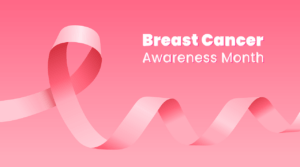No products in the cart.
Breast Cancer Facts
A Comprehensive Insight into the Disease
1. Breast Cancer Facts – Introduction
Brief on Breast Cancer and Its Prevalence
Breast Cancer Facts, a formidable adversary in the realm of health, stands as one of the most diagnosed malignancies among women globally. Its tendrils reach countless lives, leaving an indelible mark on individuals and communities. The enormity of its prevalence underscores the urgency for awareness, vigilance, and proactive healthcare.
The Importance of Awareness and Early Detection
Awareness of Breast Cancer Facts isn’t merely a buzzword; it’s the first line of defense against this ailment. When equipped with knowledge, individuals are empowered to recognize early signs, seek timely medical intervention, and significantly improve prognosis. Early detection, a beacon in the murky waters of uncertainty, can mean the difference between localized treatments and extensive, invasive procedures.
2. Understanding the Disease
Evolution and Types
Evolving silently, breast cancer is no monolith. It’s a tapestry of varied types, each with its own characteristics and prognosis. From ductal carcinoma in situ (DCIS), a non-invasive form, to invasive lobular carcinoma, understanding the nuances of each type is paramount for tailored treatments and better outcomes.
Symptoms to Watch Out For
The disease’s manifestations are as varied as its types. While some may experience pronounced changes in breast texture, others may notice unexplained pain or nipple discharge. However, many tread this path with no discernible symptoms, making regular screenings and self-examinations indispensable.
Risk Factors and Their Impact
Breast cancer doesn’t play favorites, but certain factors can tilt the scales of risk. Genetics, age, and hormonal fluctuations are just a few of the myriad elements intertwining in this complex calculus. While some factors, like age and family history, are immutable, others such as alcohol consumption and weight can be managed, offering a semblance of control in an otherwise unpredictable scenario.

3. The Diagnostic Journey
Tools of Diagnosis
Navigating the labyrinth of diagnosis requires a multifaceted approach. Mammograms, the gold standard for early detection, are often complemented by ultrasounds and MRIs, especially in dense breast tissues. Biopsies, on the other hand, offer a definitive diagnosis, illuminating the path forward.
The Role of Second Opinions
In the intricate realm of breast cancer diagnosis, a second opinion isn’t just advisable; it’s often crucial. With treatment strategies and prognosis hanging in the balance, another set of expert eyes can validate initial findings, introduce new perspectives, and ensure that the chosen path is both effective and aligned with the patient’s unique needs.
Interpreting Mammograms
Mammograms, while invaluable, come with their own set of challenges. Reading these X-ray images demands a keen eye, trained to discern subtle irregularities amidst the shadows. Understanding breast density and its implications can also influence detection rates, making it imperative for patients to be informed and proactive.
4. Treatment Modalities
Personalized Treatment Plans
Breast cancer, with its multifaceted nature, calls for treatments tailored to the individual. Beyond the generic categorizations of the disease, each patient’s unique genetic, physiological, and emotional landscape influences the course of action. Personalized treatment plans, rooted in a deep understanding of the patient’s profile, ensure optimal outcomes, balancing efficacy with quality of life.
Pros and Cons of Different Therapies
Several therapeutic avenues beckon those diagnosed with breast cancer, each with its own merits and challenges. Surgery, often the first line of defense, ranges from lumpectomies to mastectomies. While effective, surgical interventions come with physical and psychological implications. Chemotherapy, a powerful ally in the fight, can sometimes have taxing side effects. Radiation and hormone therapies, too, present their own set of advantages and challenges. It’s essential to weigh these options in consultation with healthcare professionals, ensuring a choice that aligns with both medical and personal considerations.

5. Beyond Diagnosis: The Emotional Landscape
The Emotional Turmoil and Recovery
A breast cancer diagnosis isn’t just a physiological battle; it’s an emotional maelstrom. The whirlwind of emotions—fear, anger, despair, and hope—can be overwhelming. Recovery isn’t merely about physical healing but also about emotional recuperation. Therapy, support groups, and personal coping mechanisms become vital tools in navigating this tumultuous journey.
No one should tread the path of breast cancer alone. Support systems, whether in the form of loved ones, healthcare teams, or survivor groups, offer a lifeline. They provide emotional sustenance, practical advice, and, more importantly, a reminder that hope and resilience can overcome even the direst of circumstances.
6. Stories of Resilience
Survivor Tales
Every survivor carries a tale of grit, determination, and triumph. These narratives, while deeply personal, resonate universally, offering inspiration to those in similar battles. They underscore the idea that, with the right support and tenacity, one can transcend even the most daunting challenges.
The Importance of Hope and Perseverance
In the fight against breast cancer, hope isn’t just an emotion; it’s an armor. It shields against despair, fuels perseverance, and propels individuals towards recovery. Coupled with relentless determination, hope paves the way for miracles, no matter how insurmountable the odds may seem.
7. The Genetics of Breast Cancer
BRCA Mutations and Their Implications
The genetic tapestry of breast cancer is intricate, with certain threads drawing more attention than others. BRCA1 and BRCA2 mutations stand at this forefront. Carriers of these genetic anomalies face heightened risks, making regular screenings and preventative measures crucial. These mutations also carry implications for other cancers, underscoring the need for comprehensive genetic counseling.
Risk Management for Carriers
For those who inherit the daunting legacy of these mutations, knowledge becomes the ultimate power. Understanding one’s genetic predisposition allows for proactive risk management. From regular screenings to preventive surgeries, carriers can make informed decisions, steering their health journey with confidence and precision.

8. Tracking the Changing Landscape
Historical Trends in Incidence and Treatment
Breast cancer’s narrative has witnessed ebbs and flows. While incidence rates once soared, interventions like reduced hormone replacement therapy ushered in declines. However, the journey isn’t linear. Recent years have seen subtle increases, emphasizing the need for continuous research, awareness, and adaptive strategies.
Modern Advances and Their Impact
The crusade against breast cancer is bolstered by relentless scientific endeavors. Modern advances, from targeted therapies to innovative diagnostic tools, are reshaping the landscape. These breakthroughs not only enhance survival rates but also improve the quality of life for patients, painting a more hopeful picture for the future.
9. Addressing Disparities and Debunking Myths
Understanding the Unequal Impact
Breast cancer doesn’t discriminate, but its impact can be uneven. Disparities, particularly in mortality rates among Black women, underscore the pressing need for equitable healthcare access and tailored interventions. Addressing these inequalities is more than a medical imperative; it’s a call for social justice.
Busting Common Misconceptions
Myths around breast cancer abound, muddying the waters of understanding. From misconceptions about causative factors to misguided beliefs about treatments, misinformation can be detrimental. Dispelling these myths, backed by scientific rigor, is essential to foster informed decisions and cultivate a well-educated community.
Find now – 10 Foundations that help to deal with breast cancer







Add Comment
You must be logged in to post a comment.